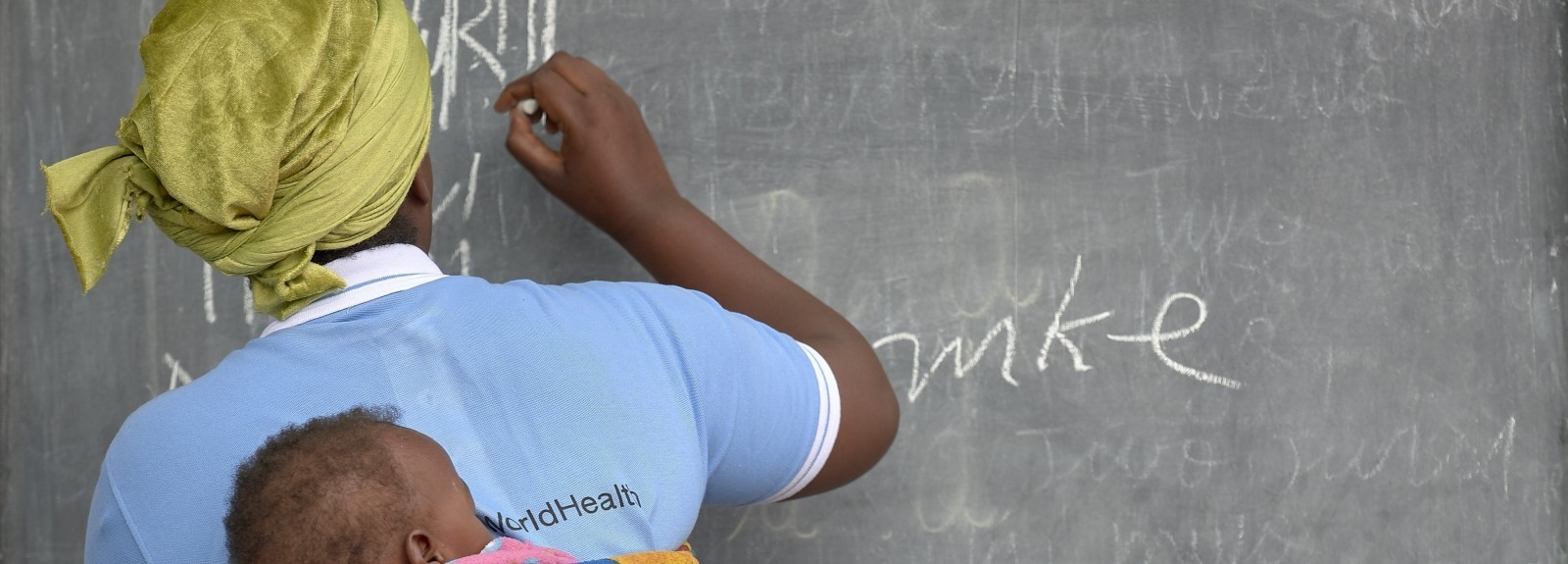IMA World Health’s work is centered on four strategic pillars: global health security, health systems strengthening, social and behavior change and integrated primary health care support and delivery. Implementing health programming through a gender lens is key to our Health Strategy, including critical family planning and sexual and reproductive health initiatives.
Noshaba Zafar, senior technical advisor for gender-based violence, narrates the turbulent experiences that many women face across the globe as she reflects on the need for gender-responsive health approaches.
_________________
I am not yet born and yet I feel the pain of rejection. When my mother discovered that she was bearing another girl, I knew that I was unwelcome. I am a disappointment, another burden to my family. My mother loses the support of her parents when it is revealed that she brings dishonor to the family.
I am born today without fanfare. My mother is pitied rather than congratulated. My father does not come to see me for several days.
I am five. I want to follow my brother to school. My father looks proud, waiting to take my brother on his bicycle. I run out but I am dragged to the kitchen to help my mother with the cooking and washing.
I am six. I must collect water from a well far from my home. Usually, I am accompanied by my mother and aunts but as soon as I can balance the pitcher on my head, I go alone. I fear the strangers that offer to help me. They tap my back, touch my cheek, even try to kiss me, and I wish I was strong enough to push them off and run away. I see the way that my mother looks at me and my sisters, with tears in her eyes, and I don’t want to tell her and add to her pain.
I am 12. There is a lot of activity around my house. I am scrutinized by family members of a 30-year-old widower. They make comments about my features, the color of my skin, my cooking abilities. They ask my father about the number of goats and gold ornaments that will be part of my dowry. My father wants to get rid of his burden and unwillingly agrees to pay my dowry. The deal is done. I am not consulted. My opinion does not matter anyway.
I am 14 and newly married. My mother-in-law invites a traditional birth attendant to inspect me and make sure that I can get pregnant. My husband keeps asking me when I am going to give him a son.
I am 15 and I am pregnant. There is a nearby clinic where one male doctor works, yet it is a matter of shame for my family to bring me to him so I can’t have any prenatal checkups. My mother-in-law makes it clear that I will be giving birth at home. She tells me that delivery is a natural process and women can give birth without any help, explaining that she had never been to a hospital during pregnancy despite three miscarriages and six live births. I am scared.
I am 20. I am a mother to four beautiful girls. I almost lost my life giving birth yet I do not have any choice in how many children I will have. I tried to convince my husband to go to a family planning clinic, but he beat me. So, I am silent. If I don’t have a boy this time, I’ll be sent back to my parent's home where they too may not welcome me. I am overwhelmed. Sometimes I wonder if this life is worth it for me and my daughters.
I am 30. I am now the mother of six girls and two boys. I want to send all my daughters to school but I’m not allowed to make the decision. My husband is pushing me to get my eldest daughter married to a 40-year-old man who is looking for a third wife in an effort to have a boy that can inherit his properties. I am conflicted as I can see my daughter going through the same pain that I endured. I want to stop this vicious cycle, but I have no power and no resources.
I am a woman.
_________________
Gender in IMA's Health Strategy
This narrative is far too common. One in three women experience multiple forms of violence every day. They are subjected to a lower status in society than that of their male peers. The imbalanced power structure of households and communities passed down from generation to generation does not allow women and girls to have autonomy over their lives and bodies. Such gendered health practices and social norms restrict girls and women from making informed decisions about their sexual and reproductive health and their futures.
We need to challenge these power dynamics and transform cultural beliefs about sexual and reproductive health. IMA World Health is committed to preventing, mitigating and responding to gender-based violence and supporting comprehensive health programs that integrate gender transformative approaches. We believe that mobilizing communities, raising awareness among youth, sensitizing health service providers and embedding strong response mechanisms into communities and health systems will support healthy environments where women and girls can thrive.
Every woman should have the power to create their own narrative.


